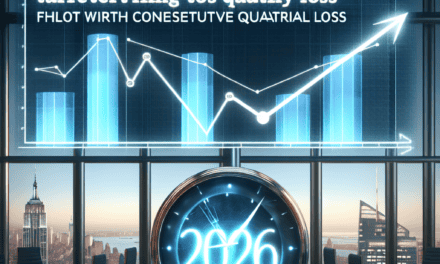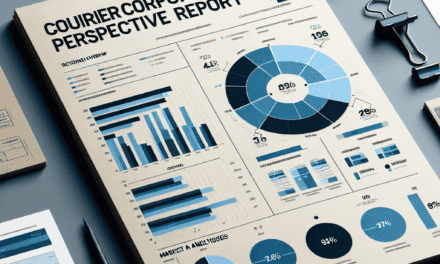“Wall Street Bets: High Stakes and Wild Cards in Trump’s Encore.”
Introduction
Wall Street Bets, the infamous subreddit known for its high-risk, high-reward investment strategies and meme-driven stock market antics, has become a significant player in the financial world, often influencing market trends and stock prices with its collective actions. As discussions around a potential second term for former President Donald Trump gain traction, the community is abuzz with speculation about potential winners and losers in the stock market. Traders and investors on Wall Street Bets are analyzing Trump’s previous economic policies, regulatory stances, and industry preferences to identify sectors and companies that might thrive or falter under his leadership. From energy and pharmaceuticals to technology and infrastructure, the subreddit is a hotbed of debate and analysis, as members attempt to position themselves advantageously in anticipation of the political and economic shifts that a second Trump term could bring.
Impact Of A Second Trump Term On Wall Street Bets’ Favorite Stocks
As the possibility of a second term for former President Donald Trump looms on the horizon, Wall Street is abuzz with speculation about the potential impact on various sectors and stocks. Investors are keenly analyzing which companies might emerge as winners or losers under another Trump administration, given his previous policies and economic strategies. The anticipation is palpable, as traders and analysts attempt to position themselves advantageously in a market that could be significantly influenced by Trump’s return to the Oval Office.
During his first term, Trump implemented a series of tax cuts and deregulation measures that were largely favorable to corporate America. These policies contributed to a bullish stock market, with many companies experiencing substantial growth. Should Trump secure a second term, it is likely that similar economic strategies would be pursued, potentially benefiting sectors such as energy, finance, and manufacturing. For instance, energy companies, particularly those involved in fossil fuels, might see a resurgence in investor interest due to Trump’s historical support for oil and gas industries. This could lead to a rally in stocks like ExxonMobil and Chevron, which have previously thrived under a deregulatory environment.
Conversely, the technology sector, which has been a darling of Wall Street Bets and retail investors, might face challenges. Trump’s contentious relationship with major tech firms, coupled with his administration’s focus on antitrust actions, could create headwinds for giants like Amazon, Google, and Facebook. These companies might experience increased scrutiny and regulatory pressures, potentially impacting their stock performance. However, smaller tech firms and startups that align with Trump’s economic vision could find opportunities for growth, as the administration might encourage innovation and competition within the sector.
Moreover, the healthcare industry could also see significant shifts. Trump’s efforts to dismantle the Affordable Care Act and his focus on reducing drug prices might lead to volatility in healthcare stocks. Pharmaceutical companies, in particular, could face pressure to lower prices, which might affect their profit margins. On the other hand, healthcare providers and insurers might benefit from policies aimed at increasing competition and reducing regulatory burdens.
In addition to sector-specific impacts, a second Trump term could influence broader market dynamics. Trump’s trade policies, especially his stance on China, could lead to fluctuations in international markets and affect companies with significant global exposure. Investors might need to brace for potential trade tensions and their repercussions on supply chains and international sales. This could create both risks and opportunities, as companies that adapt to changing trade landscapes might gain a competitive edge.
Furthermore, Trump’s approach to monetary policy and his relationship with the Federal Reserve could also play a crucial role in shaping market conditions. His previous criticism of the Fed’s interest rate decisions suggests that a second term might involve pressure on the central bank to maintain low rates, which could support continued market growth. However, this could also lead to concerns about inflation and asset bubbles, prompting investors to exercise caution.
In conclusion, the prospect of a second Trump term presents a complex landscape for Wall Street Bets and investors at large. While certain sectors and stocks might benefit from Trump’s policies, others could face challenges. As the political landscape evolves, investors will need to remain vigilant, adapting their strategies to navigate the potential winners and losers in a market shaped by Trump’s economic vision. The interplay of policy, regulation, and market sentiment will undoubtedly create a dynamic environment, requiring astute analysis and strategic foresight.
Wall Street Bets’ Predictions: Winners And Losers In A Trump Re-Election
As the possibility of a second term for Donald Trump looms on the horizon, Wall Street is abuzz with speculation about the potential winners and losers in the financial markets. Investors are keenly analyzing the implications of a Trump re-election, considering the policies he might pursue and their subsequent impact on various sectors. The anticipation is palpable, as market participants weigh the potential benefits and drawbacks of another four years under Trump’s leadership.
To begin with, the energy sector is poised to be a significant beneficiary if Trump secures a second term. His administration has consistently championed deregulation and has been a staunch supporter of fossil fuels. This approach is likely to continue, providing a boost to oil and gas companies. Investors are particularly optimistic about the prospects for shale producers, who could see a resurgence in activity due to favorable regulatory conditions. Moreover, Trump’s focus on energy independence could further bolster domestic production, potentially leading to increased profitability for companies within this sector.
Conversely, the renewable energy sector might face challenges under a Trump administration. The President’s previous term was marked by a rollback of environmental regulations and a withdrawal from international climate agreements. Should these policies persist, companies focused on solar, wind, and other renewable sources may encounter headwinds. Investors are wary of potential cuts to subsidies and incentives that have historically supported the growth of clean energy initiatives. As a result, the sector could experience a slowdown, prompting investors to reassess their positions.
In addition to energy, the healthcare industry is another area of interest for Wall Street. Trump’s stance on healthcare reform, particularly his efforts to dismantle the Affordable Care Act, has created uncertainty in the sector. Pharmaceutical companies, however, might find themselves in a favorable position. The administration’s focus on reducing drug prices could lead to increased competition, benefiting larger firms with the resources to navigate a more competitive landscape. On the other hand, healthcare providers and insurers may face volatility as policy changes unfold, prompting investors to tread cautiously.
Furthermore, the technology sector presents a mixed bag of opportunities and risks. Trump’s trade policies, especially those targeting China, have had significant implications for tech companies reliant on global supply chains. A continuation of these policies could exacerbate tensions, potentially disrupting operations and affecting profitability. However, Trump’s emphasis on deregulation and tax cuts could provide a tailwind for domestic tech firms, encouraging innovation and investment. Investors are closely monitoring these dynamics, seeking to identify companies that can capitalize on favorable conditions while mitigating potential risks.
Finally, the financial sector stands to gain from Trump’s deregulatory agenda. Banks and financial institutions have benefited from reduced regulatory burdens, which have allowed for increased lending and profitability. A second term could further entrench these policies, providing a conducive environment for growth. However, investors remain vigilant, aware of the potential for economic volatility and geopolitical tensions that could impact the sector’s stability.
In conclusion, Wall Street’s predictions for a possible second Trump term highlight a complex landscape of potential winners and losers. While certain sectors may thrive under continued deregulation and favorable policies, others could face significant challenges. Investors are navigating this intricate terrain with caution, seeking to balance opportunities with the inherent risks of a Trump re-election. As the political landscape evolves, market participants will undoubtedly continue to adjust their strategies, aiming to capitalize on the shifting dynamics of a second Trump administration.
How Wall Street Bets Traders Are Positioning For A Trump Comeback
As the political landscape in the United States continues to evolve, Wall Street is keenly observing the potential implications of a second term for former President Donald Trump. The financial markets, known for their sensitivity to political shifts, are already speculating on the possible winners and losers should Trump make a successful comeback. This speculation is particularly evident among traders on platforms like Wall Street Bets, where discussions about potential investment strategies are gaining momentum.
To begin with, it is essential to understand the sectors that could benefit from a Trump presidency. Historically, Trump’s policies have favored deregulation and tax cuts, particularly benefiting industries such as energy, finance, and manufacturing. Traders are therefore eyeing these sectors with renewed interest. Energy companies, especially those involved in fossil fuels, could see a resurgence if Trump were to roll back environmental regulations. Similarly, financial institutions might anticipate a more lenient regulatory environment, potentially boosting their profitability.
Moreover, manufacturing and industrial sectors could also experience a revival. Trump’s emphasis on domestic production and his stance on trade policies might encourage investment in companies that align with these priorities. Consequently, traders are considering stocks in these areas as potential winners, anticipating that a Trump administration would prioritize policies that support their growth.
Conversely, certain sectors might face challenges under a Trump administration. For instance, renewable energy companies could encounter headwinds if there is a shift away from green energy initiatives. Additionally, healthcare companies, particularly those involved in the Affordable Care Act, might experience volatility due to potential policy changes. Traders are thus cautious about these sectors, weighing the risks associated with potential regulatory shifts.
In addition to sector-specific considerations, Wall Street Bets traders are also focusing on broader economic indicators. The potential for tax reforms and infrastructure spending under a Trump administration could influence market dynamics. Traders are analyzing how these factors might impact inflation, interest rates, and overall economic growth. By understanding these macroeconomic trends, they aim to position themselves advantageously in the market.
Furthermore, geopolitical considerations are also playing a role in traders’ strategies. Trump’s foreign policy approach, characterized by a focus on bilateral agreements and a more assertive stance on trade, could have significant implications for international markets. Traders are therefore assessing how these policies might affect global supply chains and international trade relations, which in turn could influence the performance of multinational corporations.
While the prospect of a second Trump term is still uncertain, Wall Street Bets traders are actively preparing for various scenarios. By analyzing historical trends, policy implications, and market dynamics, they are attempting to identify potential investment opportunities and mitigate risks. This proactive approach reflects the broader sentiment within the financial community, which is always seeking to anticipate and adapt to political developments.
In conclusion, the possibility of a Trump comeback is prompting Wall Street Bets traders to carefully evaluate potential winners and losers in the market. By considering sector-specific impacts, macroeconomic trends, and geopolitical factors, they are positioning themselves to navigate the complexities of a changing political landscape. As the situation continues to unfold, these traders will remain vigilant, ready to adjust their strategies in response to new developments.
Meme Stocks And A Trump Second Term: What Wall Street Bets Is Eyeing
As the political landscape in the United States continues to evolve, Wall Street is keenly observing the potential implications of a second term for former President Donald Trump. Investors, analysts, and traders are all speculating on how such a political shift could impact various sectors of the economy, particularly the volatile world of meme stocks. These stocks, which have gained notoriety for their dramatic price swings driven by social media platforms like Reddit, are once again in the spotlight as market participants assess the potential winners and losers in a possible Trump resurgence.
To begin with, it is essential to understand the dynamics that have historically characterized Trump’s economic policies. During his first term, Trump implemented a series of tax cuts and deregulation measures that were generally favorable to businesses. These policies were particularly beneficial to sectors such as energy, finance, and manufacturing. Consequently, if Trump were to secure a second term, it is likely that these industries could experience renewed investor interest, potentially leading to a surge in stock prices. This possibility is not lost on the Wall Street Bets community, which is known for its speculative trading strategies and willingness to embrace high-risk investments.
Moreover, the potential for a second Trump term could also have significant implications for the technology sector. Trump’s contentious relationship with major tech companies, particularly those involved in social media and e-commerce, could lead to increased regulatory scrutiny. This scenario might create volatility in tech stocks, which have been a staple of the meme stock phenomenon. Traders on platforms like Wall Street Bets may view this as an opportunity to capitalize on short-term price fluctuations, employing strategies such as options trading to maximize potential gains.
In addition to sector-specific impacts, a second Trump term could also influence broader market trends. For instance, Trump’s approach to international trade, characterized by a preference for bilateral agreements and a focus on reducing trade deficits, could affect global supply chains and international markets. This, in turn, might lead to shifts in investor sentiment and market dynamics, creating opportunities for those willing to navigate the complexities of a rapidly changing economic environment.
Furthermore, the potential for increased fiscal stimulus under a Trump administration could also play a role in shaping market behavior. During his first term, Trump demonstrated a willingness to engage in significant government spending, particularly in response to the economic challenges posed by the COVID-19 pandemic. Should similar policies be enacted in a second term, sectors such as infrastructure and defense could see increased investment, attracting the attention of Wall Street Bets traders looking to identify the next big opportunity.
However, it is important to note that the speculative nature of meme stocks means that they are inherently unpredictable. While some investors may see a second Trump term as a catalyst for growth in certain sectors, others may view it as a source of uncertainty and risk. This dichotomy is emblematic of the broader challenges facing Wall Street Bets traders, who must constantly weigh the potential rewards of their investments against the inherent risks.
In conclusion, the prospect of a second Trump term presents a complex array of opportunities and challenges for Wall Street Bets and the broader investment community. As traders and investors continue to analyze the potential impacts on various sectors and market trends, the meme stock phenomenon is likely to remain a focal point of discussion and speculation. Ultimately, the ability to navigate this uncertain landscape will depend on a keen understanding of both the political and economic factors at play, as well as a willingness to embrace the inherent volatility that defines the world of meme stocks.
Wall Street Bets’ Analysis: Sectors Poised To Win Or Lose Under Trump
As the possibility of a second term for Donald Trump looms on the horizon, Wall Street is abuzz with speculation about which sectors might emerge as winners or losers under his potential leadership. Investors are keenly analyzing past policies and current economic indicators to make informed decisions. The financial markets, known for their sensitivity to political shifts, are already adjusting their strategies in anticipation of what a Trump administration might mean for various industries.
To begin with, the energy sector is one area that could see significant benefits. During his first term, Trump was a staunch advocate for fossil fuels, rolling back numerous environmental regulations to boost oil, gas, and coal production. If re-elected, it is likely that he would continue to support traditional energy sources, potentially leading to a surge in investments in these industries. Companies involved in oil drilling, pipeline construction, and coal mining might experience a favorable regulatory environment, which could translate into increased profitability and stock performance.
Conversely, the renewable energy sector might face challenges. Trump’s previous skepticism towards climate change and his withdrawal from the Paris Agreement suggest that a second term might not prioritize green energy initiatives. This could result in reduced government incentives for solar, wind, and other renewable energy projects, potentially stalling growth in these areas. Investors with stakes in renewable energy companies may need to brace for a period of uncertainty and adjust their portfolios accordingly.
In addition to energy, the healthcare sector is another area of interest. Trump’s first term saw efforts to dismantle the Affordable Care Act, and a second term might bring renewed attempts to reshape the healthcare landscape. Pharmaceutical companies could benefit from deregulation and policies aimed at reducing drug prices, which might increase their market competitiveness. However, healthcare providers and insurers could face volatility if significant changes to healthcare laws are proposed, affecting their operational stability and financial performance.
The technology sector, a powerhouse of the U.S. economy, could also experience mixed outcomes. On one hand, Trump’s focus on deregulation might benefit tech giants by reducing compliance costs and fostering innovation. On the other hand, his administration’s stance on trade, particularly with China, could impact tech companies reliant on global supply chains. Tariffs and trade tensions might lead to increased costs and market uncertainty, prompting tech firms to reassess their international strategies.
Furthermore, the financial sector might find itself in a favorable position. Trump’s administration previously rolled back several Dodd-Frank regulations, and a continuation of this deregulatory approach could benefit banks and financial institutions. Reduced regulatory burdens might enhance profitability and encourage lending, potentially stimulating economic growth. However, the sector must remain vigilant to potential economic fluctuations that could arise from broader policy changes.
In conclusion, Wall Street’s analysis of a potential second Trump term reveals a complex landscape of opportunities and challenges across various sectors. While traditional energy and financial services might thrive under a deregulatory regime, renewable energy and healthcare could face headwinds. The technology sector’s fate may hinge on trade policies and international relations. As investors navigate these possibilities, they must remain agile, continuously assessing the evolving political and economic environment to make strategic decisions that align with their financial goals.
The Role Of Wall Street Bets In Shaping Market Trends During A Trump Presidency
In the ever-evolving landscape of financial markets, the influence of online communities has become increasingly significant. Among these, Wall Street Bets (WSB), a subreddit known for its bold and often unconventional investment strategies, has emerged as a formidable force. As the possibility of a second Trump term looms on the horizon, the role of Wall Street Bets in shaping market trends warrants closer examination. This community, characterized by its irreverent approach to investing, has the potential to sway market dynamics in ways that traditional analysts might not anticipate.
During Trump’s first term, Wall Street experienced a period of volatility and unpredictability, driven in part by the administration’s policies and rhetoric. The potential for a second term brings with it a renewed focus on sectors that could either benefit or suffer under Trump’s leadership. Wall Street Bets, with its penchant for speculative trading, is likely to zero in on these sectors, amplifying market movements through its collective actions. For instance, industries such as fossil fuels, defense, and pharmaceuticals might see increased interest from WSB traders, given Trump’s historical support for these sectors. Conversely, sectors like renewable energy and technology, which may face regulatory challenges, could become targets for short-selling or bearish bets.
The influence of Wall Street Bets is not merely confined to the sectors it chooses to invest in or against. The community’s impact is also felt in the way it disseminates information and shapes investor sentiment. Through its forums, WSB members share insights, strategies, and memes that can quickly go viral, reaching a vast audience of retail investors. This rapid spread of information can lead to sudden surges in trading volumes and price volatility, as seen in the infamous GameStop saga. In a potential second Trump term, the ability of Wall Street Bets to mobilize retail investors could lead to similar market phenomena, where stocks experience dramatic price swings based on the collective sentiment of the community.
Moreover, the relationship between Wall Street Bets and institutional investors adds another layer of complexity to market dynamics. While WSB is often portrayed as a David versus Goliath story, with retail investors challenging the might of hedge funds, the reality is more nuanced. Institutional investors are increasingly paying attention to the trends emerging from WSB, sometimes even participating in the trades initiated by the community. This interplay between retail and institutional investors could become more pronounced in a second Trump term, as both groups seek to capitalize on the opportunities and risks presented by the administration’s policies.
In conclusion, the potential for a second Trump term presents a unique set of challenges and opportunities for financial markets. Wall Street Bets, with its unconventional approach and ability to influence investor sentiment, is poised to play a significant role in shaping market trends during this period. By focusing on sectors likely to be impacted by Trump’s policies and leveraging its vast network of retail investors, WSB could drive significant market movements. As such, both retail and institutional investors would do well to pay attention to the signals emanating from this influential online community, as it navigates the complexities of a possible second Trump presidency.
Wall Street Bets’ Speculative Plays: Navigating A Potential Trump Re-Election
As the political landscape in the United States continues to evolve, Wall Street remains keenly attuned to the potential implications of a second term for former President Donald Trump. Investors, analysts, and traders are closely examining the possible economic and regulatory shifts that could arise, should Trump return to the Oval Office. This speculative environment has given rise to a variety of strategic plays within the financial markets, as participants seek to position themselves advantageously in anticipation of potential policy changes.
One of the primary areas of focus for Wall Street is the regulatory environment. During his first term, Trump implemented a series of deregulatory measures, particularly in the energy and financial sectors. Should he secure a second term, it is widely expected that similar policies could be reinstated or expanded. Consequently, investors are eyeing energy stocks, particularly those in the fossil fuel industry, as potential beneficiaries. Companies involved in oil, natural gas, and coal could see a resurgence in investor interest, driven by the prospect of relaxed environmental regulations and increased domestic production incentives.
Conversely, the renewable energy sector may face headwinds under a Trump administration. During his previous tenure, Trump was known for his skepticism towards climate change initiatives and his support for traditional energy sources. As a result, stocks related to solar, wind, and other renewable technologies could experience volatility, as investors weigh the potential for reduced government support and subsidies. This dynamic creates a complex landscape for traders, who must balance the long-term growth potential of renewables against the short-term policy risks.
In addition to energy, the healthcare sector is another area where Wall Street is closely monitoring potential developments. Trump’s first term saw efforts to dismantle the Affordable Care Act and implement changes to drug pricing regulations. A second term could bring renewed attempts to reshape the healthcare landscape, with implications for insurance companies, pharmaceutical firms, and healthcare providers. Investors are likely to scrutinize these sectors for opportunities and risks, as policy shifts could significantly impact profitability and market dynamics.
Trade policy is yet another critical factor influencing Wall Street’s speculative plays. Trump’s approach to international trade, characterized by tariffs and renegotiated trade agreements, had far-reaching effects on global markets. A second term could see a continuation or intensification of these policies, affecting industries reliant on international supply chains and exports. Companies in the manufacturing and agricultural sectors, in particular, may find themselves at the center of trade-related market movements, as investors assess the potential for disruptions or new opportunities.
Moreover, Wall Street is also considering the broader economic implications of a Trump re-election. Fiscal policies, including tax cuts and infrastructure spending, could be revisited, impacting economic growth and corporate earnings. Investors are likely to evaluate sectors such as construction, transportation, and technology for potential gains, while also remaining vigilant for any signs of economic instability or inflationary pressures.
In conclusion, Wall Street’s speculative plays in anticipation of a possible second Trump term reflect a complex interplay of potential winners and losers across various sectors. As investors navigate this uncertain landscape, they must remain agile and informed, ready to adapt to the evolving political and economic environment. By carefully analyzing policy signals and market trends, Wall Street participants aim to position themselves strategically, seeking to capitalize on opportunities while mitigating risks in a dynamic and unpredictable setting.
Q&A
1. **Question:** What sectors might Wall Street Bets consider potential winners in a second Trump term?
**Answer:** Energy (particularly fossil fuels), defense, and financial sectors could be seen as potential winners due to deregulation and favorable policies.
2. **Question:** How might Wall Street Bets view the tech industry in a second Trump term?
**Answer:** The tech industry might be viewed as a potential loser due to increased scrutiny and potential antitrust actions.
3. **Question:** What impact could a second Trump term have on healthcare stocks according to Wall Street Bets?
**Answer:** Healthcare stocks might be volatile, with potential winners in pharmaceuticals due to deregulation, but losers in sectors affected by changes to the Affordable Care Act.
4. **Question:** How might Wall Street Bets perceive the impact on infrastructure stocks?
**Answer:** Infrastructure stocks could be seen as potential winners if there is increased government spending on infrastructure projects.
5. **Question:** What is the potential impact on international trade-related stocks?
**Answer:** Stocks related to international trade might be viewed as potential losers due to continued trade tensions and tariffs.
6. **Question:** How could Wall Street Bets view the real estate sector in a second Trump term?
**Answer:** The real estate sector might be seen as a potential winner due to favorable tax policies and deregulation.
7. **Question:** What might be the outlook for renewable energy stocks?
**Answer:** Renewable energy stocks could be viewed as potential losers due to a focus on fossil fuels and reduced emphasis on climate change initiatives.
Conclusion
Wall Street Bets, a popular online community known for its high-risk investment strategies and speculative trading, would likely have a mixed outlook on potential winners and losers in a possible second Trump term. On one hand, sectors such as energy, particularly fossil fuels, and defense could be seen as potential winners due to Trump’s policies favoring deregulation and increased military spending. On the other hand, industries like renewable energy and technology might face challenges due to potential regulatory changes and trade tensions. The community’s speculative nature might lead to increased volatility in stocks associated with these sectors, as traders attempt to capitalize on perceived opportunities and risks. Overall, Wall Street Bets would likely focus on short-term gains and high-risk trades, reflecting their characteristic approach to market speculation.





